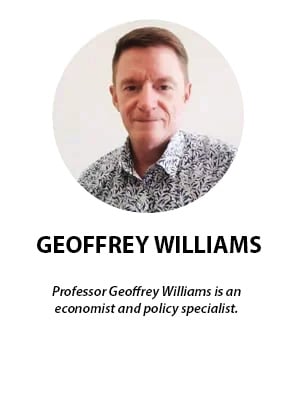
The financial situation faced by the PPR communities in Malaysia is dreadful and a continuing cause of concern.
As someone who grew up in public housing in Liverpool I understand many of the problems, and the potential solutions also appear rather similar.
The data from the recently released Unicef-sponsored “Living on the Edge” report confirms what we already suspected.
But for the data to be of real value we must use it to understand the causes and cures, not just the nature of the problem.
The economic and social impact of poverty on PPR residents is mostly contained within the communities themselves.
They become ring-fenced, isolated and excluded from the wider economy and society partly because they simply cannot afford to be part of it but also because policy choices create this isolation.
This leads to poverty continuing from one generation to the next.
There are many causes of the worsening financial situation, such as the rising cost of living, which affects everyone.
But the main cause of the problems for PPR residents and hardcore poor is ineffective government policy over many decades.
The first issue is the absence of a fully universal social protection policy.
Instead, there is a system of ad hoc welfare policies across dozens or even hundreds of programmes.
There is no philosophy or systemic design in these policies.
The second issue is that assistance is often given in kind, such as food or subsidies.
Often eligibility for assistance is based on social criteria such as whether these people have children or not, or on ethnicity.
Simple cash transfers are often more efficient and which is what people prefer.
The third issue is the huge bureaucratic inefficiency of the welfare-based approach. It is slow, complicated and a major source of wastage, leakages and corruption.
This means people do not get assistance they are eligible for because they are unaware of what is available, it is too difficult to apply or a government officer has to approve their application.
It places people in the hands of others to decide whether they get help or not and takes away their personal choices by disempowering them within a dependency system.
In many cases if they find work they lose all their welfare assistance and are worse off so they stay unemployed, poor and dependent on welfare.
For the economy as a whole, there is the wider problem of low incomes even if they are above the minimum wage, and relative poverty with half of the people in private sector jobs earning less than RM2,600 a month.
This needs to be tackled.
This is not the fault of the current unity government, which has inherited this responsibility from previous administrations. Rather, they have been caused by policy failures over many years.
The unity government actually has a different and better policy. Using the Padu system they can target those in need and give them the assistance they want.
This is almost always best achieved by cash transfers. We need to see whether the targeted subsidies will be in the form of cash transfers or not.
Unicef has suggested that the minimum wage be raised to RM2,102. However, this is still below the poverty and living wage levels and will not solve the problem.
There needs to be a new universal basic income or guaranteed basic income threshold below which no-one should fall.
It can be the minimum wage rate based on the department of statistics’ poverty-level income, Bank Negara Malaysia’s living wage or the EPF Belanjawanku estimates, and updated annually based on inflation.
It can even be the private sector median wage of RM2,600.
Anyone whose income falls below this level should receive a cash payment to top-up their income to this threshold, even those working on minimum or low wages.
This is sometimes called a reverse income tax, negative income tax or cash transfer.
This is well-known and widely accepted in economics as the best solution. The new Padu database can be used to identify individuals below the threshold to target the assistance to them in cash directly.
The basic economics is simple. Subsidies and other “in-kind” welfare assistance only benefits those who use the subsidised products. If you do not use petrol very much you do not benefit very much.
Offering cash transfers directly enables people to spend it as they choose on what they actually need for themselves and their families. They are empowered and treated with dignity like everyone else.
Food parcels for example take away people’s choice of what to eat, cash allows them to eat what they choose. If they need clothes for their children a food parcel does not help them, cash does.
People know best what they need and with cash they get to choose for themselves, not a government officer choosing for them. This is dignified and so of course everyone prefers this. - FMT
The views expressed are those of the writer and do not necessarily reflect those of MMKtT.


No comments:
Post a Comment
Note: Only a member of this blog may post a comment.